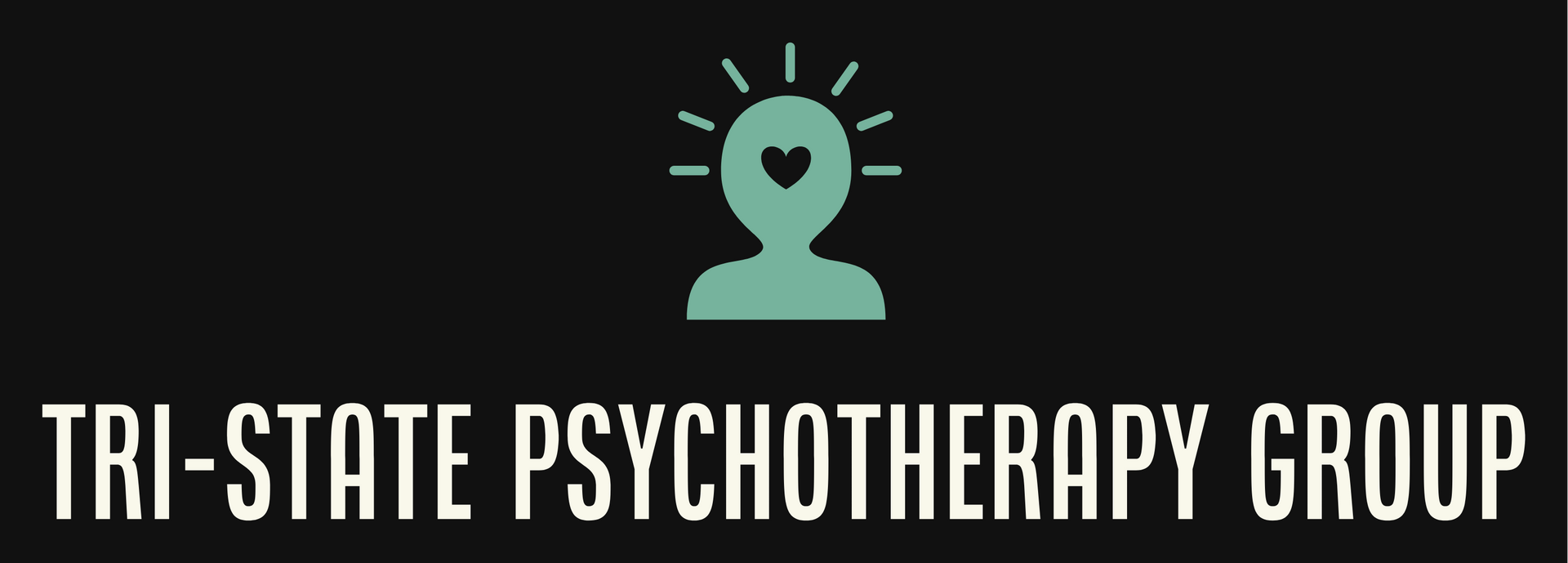
You're sitting in your living room at 3 PM on a Tuesday, laptop balanced on your knees, waiting for your therapist's face to appear on screen. The familiar chime signals the start of your session, and you settle into what has become your designated "therapy corner," complete with the good lighting you discovered after three awkward sessions of backlighting. Meanwhile, your friend just returned from their weekly appointment downtown, describing the ritual of the drive there, the waiting room with its soft music, and something intangible about "being in the space" with their therapist. If you've found yourself wondering whether you're missing something essential by choosing virtual therapy, or conversely, whether dragging yourself to an office feels unnecessarily difficult when you're already struggling, you're navigating one of the most significant shifts in mental healthcare delivery. Let's talk about that nagging question for a moment. The one that whispers whether "real" therapy can happen through a screen, whether something vital is lost in translation when WiFi connections replace face-to-face connection. Maybe you've wondered if your progress would be different if you were sitting across from your therapist in their Albany office instead of across from your computer in your bedroom. Or perhaps you've questioned whether the convenience of virtual sessions somehow makes them less legitimate, less transformative than traditional in-person therapy sessions in Great Barrington. First, let's acknowledge something important: both virtual and in-person therapy can be profoundly effective. They're simply different tools for the same essential work. The key isn't determining which is universally "better," but rather understanding which approach serves your unique needs, circumstances, and therapeutic goals at this particular moment in your journey. There's fascinating research emerging about the neurochemical differences between virtual and in-person interactions. When we're physically present with another person, our bodies naturally produce oxytocin, often called the "bonding hormone," which facilitates trust, connection, and emotional regulation. This same neurochemical response doesn't occur to the same degree during virtual interactions, even when we feel deeply connected to the person on screen. For some people, this means in-person therapy creates a neurobiological foundation for healing that feels more accessible and profound. But before you write off virtual therapy entirely, consider this: the absence of that oxytocin boost doesn't negate the powerful therapeutic benefits that can occur through digital connection. Many clients find that virtual sessions offer a unique sense of safety and control. You're literally in your own space, surrounded by your own comforts, with the ability to log off if you become overwhelmed. For individuals dealing with severe depression, anxiety, or trauma, this level of autonomy can actually facilitate deeper therapeutic work than traditional office settings. The accessibility factor cannot be overstated, particularly in areas where travel can be challenging depending on weather, transportation, or physical limitations. Virtual therapy eliminates the energy expenditure of getting dressed, driving, parking, and navigating unfamiliar spaces. This is energy that people with depression often don't have to spare. When leaving the house feels insurmountable, virtual therapy can be the bridge that keeps you connected to support during your most vulnerable moments. In-person therapy offers something that's harder to quantify but impossible to ignore: the full presence of shared physical space. There's information conveyed through body language, micro-expressions, and spatial dynamics that don't fully translate through even the highest-quality video connection. Some therapeutic modalities, like somatic therapy or certain trauma treatments, rely heavily on reading these subtle physical cues. If you're working with a therapist who specializes in body-based approaches, in-person sessions might offer distinct advantages. The ritual aspect of in-person therapy deserves recognition too. The drive to your therapist's office becomes transition time, allowing your mind to prepare for the session. The waiting room creates anticipatory space. The walk to the car afterward provides processing time. These bookends to the therapeutic hour help create psychological containers that some people find essential for their healing process. However, virtual therapy creates its own unique therapeutic dynamics. Many clients report feeling less inhibited on screen, more willing to discuss difficult topics when they're in their familiar environment. The slight removal that technology provides can paradoxically create space for greater vulnerability. Additionally, virtual sessions can be recorded (with consent) for later reflection, and therapists can more easily incorporate multimedia resources or assign between-session digital homework. For people managing conditions like agoraphobia, severe social anxiety, or mobility issues, virtual therapy isn't just convenient. It's often the only viable option for consistent care. Similarly, parents juggling childcare, people with demanding work schedules, or those in rural areas might find that virtual sessions make therapy actually sustainable in their lives rather than another stressor to manage. The therapeutic relationship – that crucial foundation of trust and connection – can develop powerfully in both formats. What matters most isn't the medium but the quality of the connection, the skill of the therapist, and the readiness of the client to engage in the work. Some people form deep therapeutic bonds through screens; others need the full sensory experience of shared physical space. If you find yourself torn between virtual and in-person options, consider starting with an honest assessment of your current needs and limitations. Are you dealing with depression so severe that leaving the house feels impossible? Virtual therapy might be your entry point back to connection. Are you working through trauma that lives in your body and requires nuanced physical awareness? In-person sessions in Albany, Pittsfield, or Great Barrington might serve you better. Many therapists now offer hybrid approaches, allowing you to switch between virtual and in-person sessions based on your changing needs, the weather, your energy levels, or the specific topics you're working through. This flexibility can be particularly valuable in regions where winter weather or seasonal depression might make travel to therapy offices more challenging during certain months. Remember that your therapeutic journey doesn't have to be static. You might start with virtual sessions to establish connection and then transition to in-person work, or begin with in-person therapy and switch to virtual when life circumstances change. The goal is finding what works for you right now, knowing that your needs may evolve. Virtual and in-person therapy aren't competing approaches. They're different pathways to the same destination of healing and growth. Whether you're connecting from your home computer or settling into a therapist's office in the Capital Region, what matters most is that you're showing up for yourself and your wellbeing. Both formats can facilitate profound change, deep connection, and lasting healing. The "right" choice is simply the one that removes barriers and creates space for you to do the important work of therapy, wherever that work feels most possible for you. At Tri-State Psychotherapy Group, we believe in preserving choice and accessibility in mental healthcare. While many practices have moved exclusively online, we remain committed to maintaining our in-person therapy options because we understand that healing happens differently for everyone. Our offices in Albany, NY, Great Barrington, MA, and Pittsfield, MA continue to offer the full sensory experience of traditional therapy for those who find it most beneficial, while our virtual options ensure that geographic or circumstantial barriers never prevent someone from accessing the support they need. Because sometimes the path to healing requires the ritual of a dedicated space, and sometimes it requires the comfort of your own home.

You sit across from a friend at lunch, watching them laugh and engage with the conversation while you nod along, your smile not quite reaching your eyes. Later, you'll hear someone describe them as "the life of the party, always so positive" and you'll wonder how no one sees what you do: the subtle dimming of their light, the careful way they've constructed their joy. Meanwhile, another friend has withdrawn completely, their absence speaking volumes about their struggle. If you've ever wondered why depression looks so different from person to person – why some people crumble while others seem to function on autopilot, you're witnessing the complex interplay between personality and pain. Let's talk about that disconnect for a moment. The one where depression is portrayed as a one-size-fits-all experience of tearfulness and withdrawal, yet somehow manifests as irritability in your usually patient partner, perfectionism in your typically laid-back colleague, or risk-taking in your ordinarily cautious friend. While depression certainly shares common threads, that persistent heaviness, the muting of joy, the exhaustion that seeps into your bones, the fabric it weaves through your life is uniquely colored by who you are at your core. First, let's acknowledge something important: recognizing depression isn't always about spotting sadness. Sometimes, it's about noticing when someone's natural tendencies become amplified or distorted beyond recognition. The extrovert who once recharged through connection may now use socializing as a mask, filling their calendar to outrun the silence where their thoughts live. The introvert might push past healthy boundaries of solitude into isolation that deepens their disconnection. Depression doesn't create new personalities, it warps existing ones. For the naturally analytical mind, depression often manifests as rumination that transforms healthy reflection into an inescapable maze of negative thoughts. These individuals might become obsessed with understanding "why" they feel this way, researching endlessly, creating spreadsheets of symptoms, or journaling compulsively, their typical problem-solving nature working overtime yet finding no solution. Their depression looks like thinking themselves in circles, intellectualizing emotions until they're too exhausted to feel them. Meanwhile, the natural caretakers among us might find their depression wearing the disguise of martyrdom. They double down on taking care of everyone else while neglecting themselves entirely. Their depression doesn't look like asking for help, it looks like becoming the perfect parent, partner, or friend while internally collapsing. They measure their worth by what they give, so when depression whispers they're worthless, they respond by giving more, creating an unsustainable cycle that eventually breaks them. The achievers face a different manifestation, depression that hides behind busyness and unprecedented productivity. When feelings of emptiness or worthlessness creep in, they might respond by working harder, setting impossible standards, or adding more accomplishments to their résumé. Their depression looks like burnout disguised as ambition, with success that feels increasingly hollow despite external validation. For the naturally creative soul, depression might show up as either creative paralysis or frenetic expression. Some find their imagination, once a wellspring of joy, becomes inaccessible, colors fading to gray. Others create with desperate intensity, their art becoming darker, their output manic, as they try to externalize what's happening internally. Their depression looks like either a sudden abandonment of beloved hobbies or art that screams what they cannot say aloud. The free spirits and sensation-seekers often experience depression through increasing risk-taking behaviors. Their usual enjoyment of new experiences becomes a desperate chase for any feeling at all. Their depression doesn't look like withdrawal, it looks like impulsivity, substance use, or adrenaline-seeking behaviors that help them temporarily escape the numbness. They run faster just to feel the wind on their skin when everything else has gone cold. Connection is a powerful counterbalance to these personalized expressions of depression. When we understand how our personality shapes our experience, we can better articulate what we're feeling and seek help that actually addresses our needs. The analytical thinker might benefit from cognitive approaches that work with their thought patterns. The caretaker might need explicit permission and support to prioritize self-care. The achiever might require help redefining success beyond productivity. And here's something that might create a paradigm shift: understanding how your personality influences your depression can transform treatment from a generic approach to a tailored journey. If therapy hasn't worked for you before, perhaps it wasn't the right fit for who you are at your core. Some thrive with straightforward cognitive techniques, others need creative expression integrated into their healing, while still others heal best through physical movement or social connection. Remember that authenticity and struggle can coexist. You're not "faking" depression if it doesn't match the textbook definition, nor are you "not trying hard enough" if traditional approaches haven't helped. Your experience is valid precisely because it's filtered through the unique lens of who you are. If you recognize aspects of your own experience in these descriptions, try this simple reflection: think about who you were before depression entered your life. What energized you? What were your natural tendencies? Now, consider how depression might be distorting those qualities rather than erasing them completely. This awareness itself can be the first step toward reclaiming your authentic self from depression's grip. Depression is a complex visitor that adapts to its host, but understanding its personalized manifestations brings power back into your hands. By recognizing how it uniquely expresses through your personality, you can name it more accurately, explain it to others more clearly, and seek help that honors who you are. After all, healing doesn't mean becoming someone new – it means finding your way back to yourself, with greater compassion for the journey you've traveled. So take a moment to reflect on your particular expression of pain, and remember: in the vast landscape of mental health, your path is allowed to be as unique as you are.

You wake up, reach for your phone, and there it is, another city engulfed in flames, another community swept away by floods, another ecosystem pushed to the brink. The morning light filtering through your window suddenly feels different, heavier somehow, as you process the latest climate disaster unfolding across your screen. Your chest tightens, your thoughts begin to race, and that familiar feeling of dread settles in like an unwelcome houseguest. If you've felt this way, this mix of heartache, helplessness, and creeping anxiety about our planet's future, you're part of a growing chorus of voices who carry the weight of our changing world. Let's talk about that spiral for a moment. You know the one – where a news article about rising sea levels somehow leads to imagining complete societal collapse by next Tuesday. It's like your brain becomes a runaway train, picking up speed with each catastrophic thought. While these feelings are completely valid (because let's face it, climate change is a serious issue), getting stuck in that spiral doesn't help you or the planet. So how do we find solid ground when it feels like the world is literally and figuratively burning? First, let's acknowledge something important: feeling anxious about climate change doesn't mean you're catastrophizing, it means you're paying attention. The trick isn't to stop caring; it's to channel that care into something sustainable for your mental health. Think of it like tending a garden. You can't control the weather, but you can control how you prepare, respond, and adapt to whatever comes your way. One powerful way to regain your footing is through what therapists call "scaling back to action." When your mind starts racing toward worst-case scenarios, gently pull yourself back to the present moment and ask: "What can I do right now?" Maybe it's supporting local environmental initiatives, joining a community garden, or making sustainable changes in your daily life. These actions might feel small against the backdrop of global climate change, but they're like dropping pebbles in a pond, the ripples extend far beyond the initial splash. Developing a "worry window" can also be surprisingly effective. Instead of letting climate concerns hijack your thoughts throughout the day, set aside specific time, say, 30 minutes, to engage with climate news and take action. This isn't about ignoring the reality of climate change; it's about creating boundaries that allow you to stay informed and involved without becoming overwhelmed. During your worry window, read those articles, process your feelings, and plan your next steps. Outside that window? Focus on living your life and implementing the positive changes you've planned. Connection is another powerful antidote to spiraling thoughts. When climate anxiety hits, our minds often zoom out to the global scale, making us feel tiny and powerless. Try zooming back in instead. Connect with local environmental groups, talk with friends who share your concerns, or join online communities focused on climate action. There's something incredibly grounding about realizing you're not facing this alone, that there are others out there working just as hard to make a difference. And here's something that might sound counterintuitive: sometimes the best thing you can do for the planet is to take care of yourself. When you're caught in an anxiety spiral, your ability to take meaningful action diminishes. Practice self-care strategies that help you stay centered: mindfulness exercises, time in nature, creative outlets, or whatever helps you feel grounded. Think of it as maintaining your own emotional sustainability, you can't pour from an empty cup, even when it comes to environmental activism. Remember that hope and concern can coexist. You can acknowledge the severity of climate change while also recognizing the incredible innovations, policy changes, and grassroots movements happening worldwide. Look for stories of positive change alongside the challenging headlines. They're not just feel-good narratives; they're proof that collective action makes a difference. If you find yourself sliding into catastrophic thinking, try this grounding exercise: name three things you can see in your immediate environment that represent hope or resilience. Maybe it's a plant growing through concrete, a neighbor's solar panels, or a community recycling bin. These small reminders help anchor us in the present moment and remind us that positive change is happening, even if it's not making headlines. Climate anxiety is a natural response to an overwhelming situation, but it doesn't have to control your life. By finding balance between awareness and action, creating sustainable boundaries, and connecting with others, you can transform that anxious energy into meaningful change. After all, the world needs you engaged and effective, not paralyzed by worry. So take a deep breath, plant your feet firmly on the ground, and remember: you're not carrying this weight alone.

Are you a high school student passionate about making a difference in the world of mental health? Our Summer Program for Psychology and Social Work might be the perfect opportunity for you to explore the vast and rewarding fields of psychology and social work this summer. Designed specifically for ambitious students eager to dive deep into the mental health profession, this program offers an immersive introduction to therapeutic modalities, ethical considerations, and the practical aspects of mental health care. Discover the World of Mental Health Professions The mental health field is dynamic and constantly evolving, with a growing need for compassionate and skilled professionals. Our program is your gateway to understanding this complex, fascinating world. Over four weeks, you'll gain insights into Cognitive Behavioral Therapy (CBT), Dialectical Behavior Therapy (DBT), Acceptance and Commitment Therapy (ACT), and Psychodynamic Therapy through interactive sessions and hands-on activities. A Tailored Experience for High School Students This virtual program, tailored for high school students, blends flexibility with structured learning. With virtual meetings scheduled to accommodate students from all over the country, and content accessible on Google Classroom, participants can engage in learning at their own pace. Scheduled group supervisions and student seminars provide live interaction with experienced professionals, offering a rare glimpse into the therapeutic process. Empowering Your Educational Journey Participants will not only enhance their knowledge but also develop essential skills that are invaluable both in personal and professional life. Completing assignments such as quizzes, presentations, diagnostic formulations, and treatment planning enriches your understanding and prepares you for future studies or careers in psychology and social work. Join Us This Summer If you're ready to take the first step towards your future career in mental health, our Summer Program for Psychology and Social Work awaits you. With limited spots available, early registration is encouraged. Visit this page to learn more and secure your place in this summer's cohort. Embrace this chance to explore your passion for mental health, develop new skills, and make informed decisions about your educational and career path. Let this summer be the start of your journey into the rewarding field of psychology and social work.

Stepping into therapy, you might find yourself handed a questionnaire or two, like the PHQ-9 for depression or the GAD-7 for anxiety, and think, "Great, homework!" It's a common reaction. You're there to unpack the heavy stuff, to dive deep into conversation, not to tick boxes about how often you've felt down in the past two weeks. But here's the thing – while it might feel like an extra, maybe even annoying step, these tools are secretly superheroes in the realm of mental health. Let's face it, opening up to a therapist can be daunting. You're navigating this complex world of emotions and experiences, trying to articulate the whirlwind inside. Then, you're asked to quantify those feelings on a scale. It feels a bit off, right? Like trying to measure the ocean with a ruler. But these questionnaires, as dry as they may seem, are like the compass that helps navigate that vast ocean. They don't diminish the depth of your experiences but give you and your therapist a common starting point. Think of it this way: you wouldn't start a road trip without knowing your starting location. Similarly, understanding where you're at mentally when you begin therapy provides a map of sorts. It's not just about slapping a score on your feelings; it's about establishing a baseline. This baseline is crucial. It's the "You Are Here" marker on your personal journey to better mental health. With it, your therapist can tailor their approach more precisely to fit your needs, charting a course that's uniquely yours. But here’s the real magic – these numbers turn into a narrative of your progress. It's one thing to feel better; it's another to see it reflected back to you in black and white. Watching your scores change over time can be incredibly affirming. It's tangible proof that the conversations, the strategies, and maybe even the tears, are all part of moving forward. It's a way of tracking your journey that adds an extra layer of motivation and validation to the therapy process. And let's not overlook the power of collaboration these tools bring to the table. Therapy isn't a spectator sport; it's a partnership. By bringing these measurement tools into the mix, you're not just talking at your therapist; you're working with them. Together, you'll use these scores as signposts, checking in on your progress and adjusting the plan as you go. It turns therapy into a more dynamic, interactive process where you're an active participant in your own healing. In the whirlwind of emotions that therapy can sometimes stir up, these questionnaires offer a moment of clarity. Yes, filling them out might feel like a formality, a bit of administrative tedium before the real work begins. But in truth, they're laying the groundwork for a personalized, effective therapy experience. They ensure that your therapy sessions are more than just conversations; they're stepping stones on a well-mapped path to wellness. So next time you're handed a PHQ-9 or GAD-7, remember, it's not just a form. It's the beginning of a conversation, a way to turn the intangible into something measurable, and a step towards a therapy journey that's as unique and nuanced as you are. In the grand scheme of things, it's a small task with a big impact, making it a little less "homework" and a lot more "tool for transformation."

College life is a wild ride, isn't it? You've got classes, assignments, social stuff, and all the responsibilities of newfound independence. It's exciting, but it can also be super stressful. That's why taking care of yourself is more important than you might think. It's not a luxury; it's essential for making your college journey enjoyable and successful. So, let's chat about how you can dial down the stress and give yourself some TLC. First things first, let's talk about stress. We all get stressed, especially in college. It's a normal reaction to dealing with a bunch of stuff all at once. Figuring out what's stressing you out is the first step in managing it. Time management is a big deal in college. If you've got a gazillion things to do, it can feel overwhelming. So, get organized! Make a schedule that balances study time, relaxation, and hanging out with friends. Use a planner or an app to keep track of assignments and deadlines. Trust us, good time management leaves room for self-care. Ever heard of mindfulness? It's like a mental breather. Take a few minutes each day to chill and be present. Focus on your breath, how your body feels, or the sounds around you. It might sound weird, but it helps you stay calm and deal with whatever college throws your way. Exercise isn't just about staying in shape; it's a stress buster. When you work out, your body releases these feel-good chemicals called endorphins. So, find something active you enjoy – whether it's yoga, jogging, or just dancing around in your room. College often messes with your sleep schedule, but getting enough shut-eye is crucial for stress relief. Make your sleeping space comfy, try to go to bed at the same time every night, and put away screens before bedtime. Shoot for 7-9 hours of sleep; it does wonders for your mood and energy. Don't go it alone. Hang out with friends who make you feel good and talk to them about what's going on. Lean on each other when things get tough. Having a support system is like having your own cheering squad for the college rollercoaster. Self-care isn't selfish – it's a way of showing yourself some love. In the chaos of college life, self-care is like your personal life-saver. When you manage your time, stay mindful, stay active, get enough sleep, and surround yourself with supportive people, college becomes a lot more manageable. College is like a crazy mixtape with highs and lows. By taking care of yourself, you can groove through it all. You're the DJ of your college journey, and self-care is the playlist that keeps you dancing through the ups and downs. So, remember to crank up the self-care volume and enjoy your college experience to the fullest!

Discover why starting therapy can be challenging and how to overcome common hesitations. Explore the fear of the unknown, vulnerability hang-ups, stigma, financial concerns, and resistance to change. Embrace the transformative power of therapy and find the strength to prioritize your mental well-being.


